WASHINGTON — While much of President Joe Biden’s foreign policy attention has been focused on Ukraine in recent months, the threat posed by North Korea has continued to simmer in the background and may soon grab the spotlight as Biden makes his first trip to Asia as president.
Biden’s visit to U.S. allies South Korea and Japan, which began Friday, is largely focused on economic initiatives and countering China’s growing power. But it could be complicated by a big show from North Korea, which has been conducting frequent weapons tests since the start of the year.
“I think everybody’s on the lookout for them to do something during Biden’s visit to ensure that they are at the top of the agenda,” said Christopher Green, a senior consultant on the Korean Peninsula for the International Crisis Group.
After meeting on Saturday, Biden and South Korean President Yoon Suk-yeol reiterated their commitment to denuclearization in North Korea and called on the reclusive communist country to return to negotiations. They also said they would begin talks on expanding joint U.S.-South Korea military exercises.
Biden has agreed to “discuss the deployment of U.S. strategic assets” if it becomes necessary, Yoon added.
Senior administration officials have said their intelligence indicates North Korea may test an intercontinental ballistic missile or even a nuclear device during or soon after Biden’s trip. In March the country tested an intercontinental ballistic missile for the first time since 2017, breaking a self-imposed moratorium on ICBM and nuclear testing.
The U.S. has been preparing a response to the possibility, which could include bolstering its military presence in the region, officials said.
“We know what we will do to respond to them. We have communicated with not just our allies, but also with China, and this could cause the United States really to increase our fortitude in terms of defending our allies and cause adjustments to the way that our military is postured in the region,” White House national security Adviser Jake Sullivan said during a briefing with reporters on the way to South Korea on Thursday.
Sullivan said such an action by North Korea, and the U.S. response, would underscore the message Biden is trying to send on this trip about the U.S. commitment to its allies in the strategically important region.
“We are here to help define deterrence and defense” for South Korea and Japan, Sullivan said. “We will respond to any threats and any aggression decisively.”
While North Korea has marched forward with its nuclear ambitions, that challenge has taken a backseat in Biden’s foreign policy agenda. Entering office, Biden had hoped to focus the bulk of his attention on China, which he has described as the top national security challenge facing the United States.
But throughout his presidency, Biden’s attention has been pulled to more immediate foreign policy crises in other parts of the world, including the chaotic withdrawal of U.S. troops from Afghanistan last August and Russia’s invasion of Ukraine this February.
Meanwhile, Biden has made little, if any, progress on relations with North Korea during his nearly 18 months in office as the North Koreans have rebuffed offers by the administration to sit down at the negotiating table.
“They want the Americans to come to them, and the Americans are saying, ‘The door’s open, but you have to change your attitude,’ and the North Koreans are not going to do that either,” Green said. “So I see little opportunity for discussions until North Korea raises the stakes further.”
The U.S. has attempted to reach out to North Korea through a variety of channels, including Chinese officials who are believed to be in contact with their North Korean counterparts.
“Thus far North Korea has not displayed any indication of willingness to engage in any meaningful or constructive diplomacy,” Sullivan said. “And as long as they continue to refuse to do so we’ll continue to stay on the course we’re on, which is to impose pressure and to coordinate closer with our allies and to respond to provocations with clarity.”
U.S. talks with North Korea have been stalled since 2019 after a dramatic summit between former President Donald Trump and North Korean leader Kim Jong Un failed to produce any tangible progress toward denuclearization. The issue receded on the international stage as the pandemic began and North Korea shut its borders.
When Biden came into office, there was hope that he would “start engaging North Korea in a practical manner,” said Tongfi Kim, a professor at the Brussels School of Governance. “But so far what happened is almost like the Obama administration’s approach, which was basically wait and see what happens.”
Biden will visit U.S. troops stationed in South Korea on Sunday, before traveling to Tokyo, where he will meet with Prime Minister Fumio Kishida. There, he will also meet with the leaders of Australia and India, which together with the U.S. and Japan make up an informal security grouping known as the Quad.
His trip comes as North Korea is grappling with a major coronavirus outbreak, after claiming to have had no cases for more than two years. The population of 26 million people is mostly unvaccinated, and public health experts believe the highly contagious omicron variant could have a devastating impact on the country, whose economy is already suffering from years of mismanagement and crippling U.S.-led sanctions.
A White House official told NBC News that the U.S. offered North Korea Covid relief, including vaccines, as recently as last week through existing mechanisms like COVAX, a humanitarian program run in part by the World Health Organization that aims to distribute vaccines fairly. The U.S. has also offered vaccines to China to provide to North Korea, the official added.
North Korea has not been receptive to any offers of outside help except from China, meaning the outbreak is unlikely to create an opportunity for re-engagement.
The same day it acknowledged the outbreak, North Korea launched three short-range ballistic missiles in its 16th round of tests this year, in violation of U.N. Security Council resolutions. The tests are widely seen as an effort to force the U.S. and others to accept North Korea as a nuclear power and offer it sanctions relief. But the tests have had limited impact, with China and Russia resisting additional sanctions. Experts say that could make an ICBM or nuclear test more tempting.
If North Korea were to conduct a nuclear test, it would most likely be an underground detonation of a small tactical device at its Punggye-ri site, where satellite photos have shown the first new construction in years.
“I think the key question is if North Korea conducts another nuclear test, is that enough to persuade China and Russia to sign on to another Security Council resolution?” Green said.
South Korea, meanwhile, has been enhancing its own weapons arsenal in a regional arms race that experts view with concern.
“There has been a constant refrain about whether or not tactical nuclear weapons should return to South Korean territory,” Scott Snyder, a senior fellow for Korea studies at the Council on Foreign Relations, said in a briefing with reporters. “It’s not a place where I think the Biden administration wants to go, but there is a sub-current in the South Korean discussion related to that question.”
Yoon, a conservative former prosecutor, is expected to take a harder line toward Pyongyang than his predecessor, Moon Jae-in, who facilitated the U.S.-North Korea summits during the Trump administration.
“Moon Jae-in basically had this vision of pursuing peace through reconciliation between the North and South, whereas President Yoon pursues peace through strength,” Kim said.
That means improving security ties with the U.S. as well as Japan, which Kim said had been less of a priority during the Moon administration.
“They are really pushing for much better coordination among the three countries,” he said.

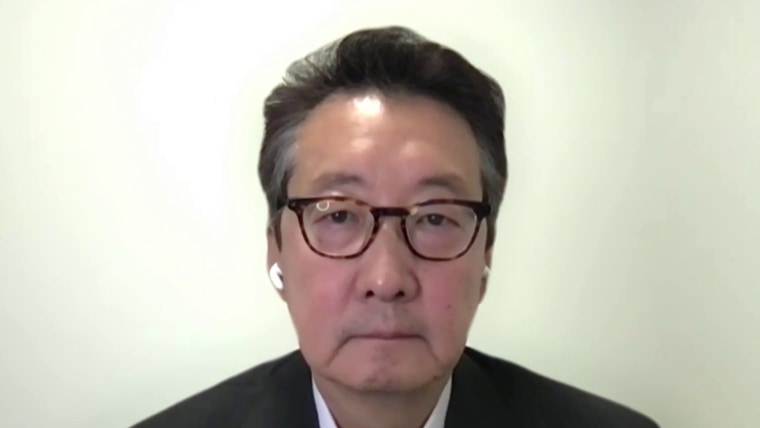
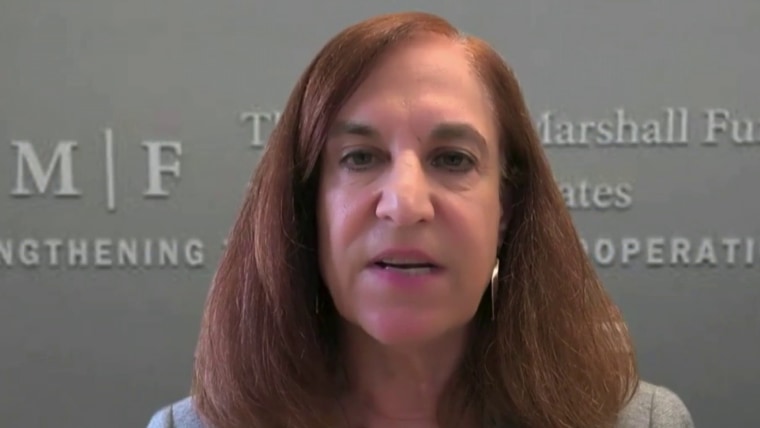
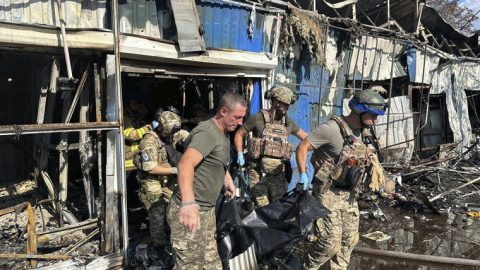
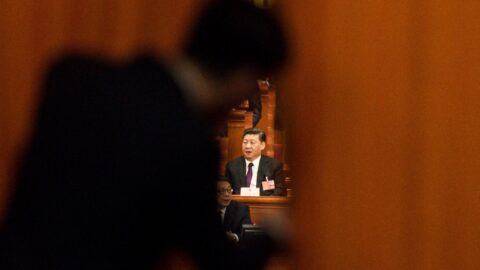
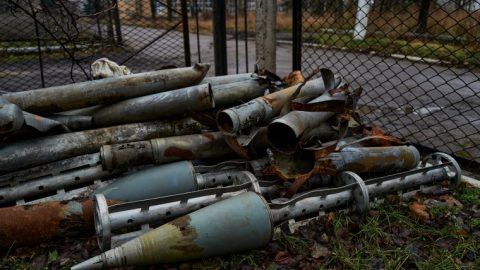

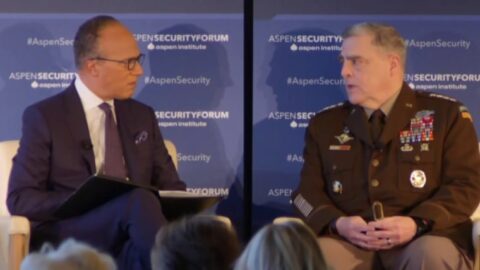

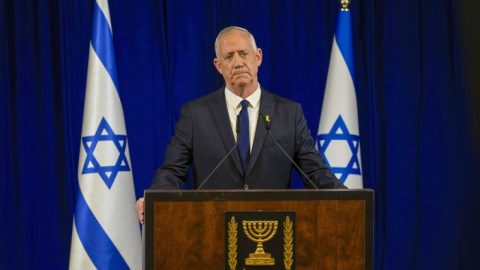

Recent Comments